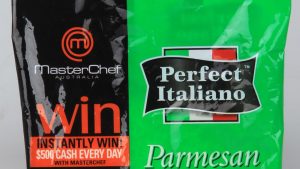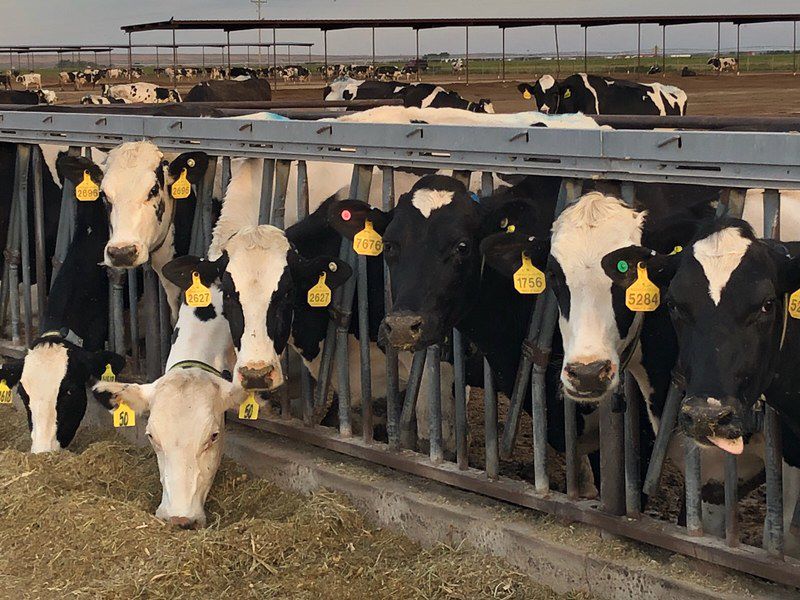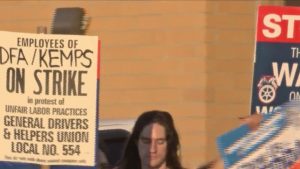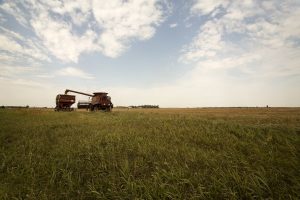
Unfortunately, barring aggressive and effective intervention by federal and state governments, Americans could be asking that question a lot more often in coming weeks in serious fashion. Along with, “Where’s the bacon, cheese, butter and lettuce?”
The COVID-19 outbreak and the widespread shutdown orders to contain it have wreaked havoc on the nation’s food supply chain. Pork produces are euthanizing pigs because slaughterhouses are backing up or closing. The beef industry faces similar challenges. Dairy owners are dumping milk as prices have fallen to their lowest point in a dozen years. Rows of lettuce are shriveling in the sun, waiting to be plowed back into the earth.
The reasons are complex. Some major slaughterhouse and packing facilities have been forced to close because of coronavirus outbreaks among employees, who work in close quarters. For example, Smithfield Foods closed a major pork processing plant in Sioux Falls, South Dakota, after an outbreak there. Tyson Foods was forced to close a pork processing plant in Waterloo, Iowa, after more than 180 infections were linked to the plant. The company warned that closing the plant, which accounts for nearly 4% of U.S. pork processing capacity, would have a significant impact on the food supply chain.
But plant closings aren’t the only factor. When restaurants and schools were shut across the country, meat, milk and produce farmers all took an instant gut punch. Much of the demand for their products simply vanished overnight. For example, half the nation’s cheese and 60 percent of its butter goes to restaurants.
All this has led to lower prices for cattle being sold to feedlots and packers. When demand drops out of a market, prices plummet. The fact that dairy farmers facing a milk glut are further culling herds and those animals end up in the beef market depresses milk prices even further.
In short, this has been a disaster for agriculture and one that is headed for consumers like a freight train.
Meanwhile, this is happening at a time when people who suddenly don’t have jobs are lining up for miles at food banks around the country. Feeding America, a nationwide network of more than 200 food banks, predicts an additional 17.1 million Americans will have trouble feeding themselves and their families as a result of the pandemic — on top of the estimated 37 million food-insecure Americans in 2019.
And while the Trump administration announced a $19 billion program last week to help the struggling agriculture sector with cash payments and purchases of food that will go to those in need, as well as an executive order to use the Defense Production Act to compel meat processing plants to stay open with liability protections, it cannot ignore the safety issue. Much needs to be done to protect workers in those plants, even if it means less production. If government and employers want to keep the supply chain healthy, they need to make sure the workers are safe and healthy.
Meanwhile, we need to find ways to get fresh produce and dairy from farms to food banks, and food that was scheduled for restaurant supply repackaged for home use — all while maintaining social distancing and without breaking already stretched-thin food banks.
“The federal government has been able to do a lot of things that no one thought they could do unilaterally,” former Sen. Heidi Heitkamp of North Dakota told The Washington Post. “Agriculture has always been pretty resilient, but if we don’t fix this supply-chain problem, we will have farmers going out of business.”
And that means millions more queuing up at food banks and frustrated consumers staring at the slim pickings in supermarket meat counters asking, “where’s the beef?”
— Albuquerque Journal, New Mexico

























